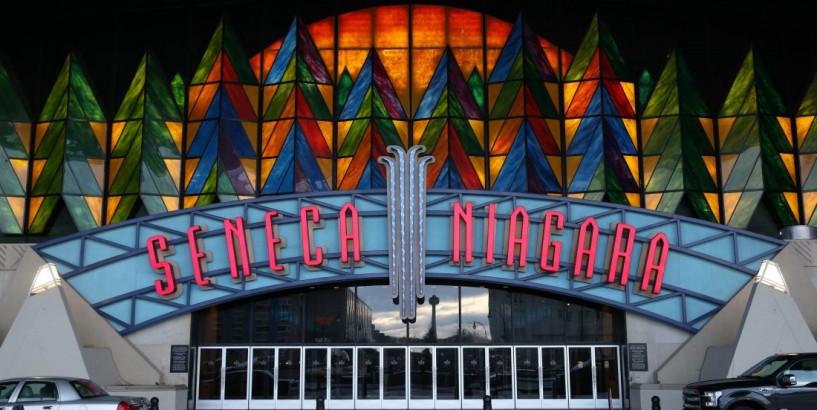ALBANY – An arbitration panel Wednesday ordered the Seneca Nation to pay the state $255 million in lapsed casino revenue-sharing proceeds – though it remained uncertain if the stalemate is actually over.
The same two arbitration panel members who in January preliminarily sided with the state in the dispute Wednesday said the tribe also needs to restart quarterly payments to New York as agreed to in the original compact that paved the way for the Senecas to open casinos in Niagara Falls, Buffalo and Salamanca.
The third arbitration panel member, who was appointed by the tribe, did not sign off on the order issued Wednesday to lawyers for the two sides.
The tribe’s precise tab owed the state – through Dec. 31, 2018 – was $255,877,747.44, according to the arbitration panel.
However, sources recently said, there could be some additional legal moves the Senecas are considering that could keep the dispute from conclusion.
Seneca Nation President Rickey Armstrong Sr. said Wednesday night that the nation is reviewing the decision.
Earlier in the day, in a meeting with reporters and editors at The Buffalo News, Gov. Andrew M. Cuomo seemed to signal the arbitration decision might not end the matter.
State officials said the Senecas have put the disputed money into escrow – as required by the casino compact signed by the state and tribe – but that it is uncertain the Seneca Nation will make the payment.
“They had said they would honor the arbitration decision, and they signed a contract saying they would honor the arbitration decision. What does that mean? Apparently not much,’’ Cuomo said.
The Seneca Nation in 2017 stopped paying the state 25 percent of the proceeds it makes off slot machines at the three casinos. Officials with the tribe said the compact’s terms did not specifically state such proceeds had to be paid after the 14th year of the original 2002 compact deal. That compact included the revenue sharing in return for an exclusivity deal for casino gambling in a large region of Western New York.
Two of the arbitrators – including one appointed to the panel by the state – said in January that the tribe was wrong in its interpretation of the compact.
The final decision issued Wednesday put a specific dollar amount owed to the state by the tribe.
The state shares 25 percent of what it gets from the Seneca Nation with host communities – which includes the three cities that are home to the casinos, as well as some other local entities, including school districts.
Some, like Niagara Falls, came to heavily rely on the revenue-sharing payments to balance its books, and officials in Buffalo are hoping to use a resumption of the Seneca payments to help finance raises for elected officials.
The compact says that disputes between the state and tribe – if not resolved through direct talks – will be handled by an arbitration panel giving binding decisions. The compact includes language that permits the state to sue the Seneca Nation in federal court in Buffalo if the tribe should not abide by the decision of an arbitration award.
The only thing the state and Seneca Nation appeared to definitively agree on in the dispute: the amount of money at stake.
The $255 million in back payments covers the period from Jan. 1, 2017, through Dec. 31, 2018. An additional quarterly payment covering the first three months of this year is due soon.
The arbitration panel’s work was not free: it ordered the two sides to evenly split a payment of $338,000 in compensation and expenses.
The decision was sent from the American Arbitration Association to a private lawyer in Manhattan representing the state and a lawyer for the Seneca Nation.
The arbitrators siding with the state were Henry Gutman, a New York City lawyer appointed to the panel by the Cuomo administration, and William Bassler, a professional arbitrator selected by the other two panel members.
Siding with the Seneca Nation was Kevin Washburn, the University of Iowa law school dean and member of the Chickasaw Nation of Oklahoma.
In January, the Seneca Nation was sharply critical of the initial finding in the state’s favor, and stopped short of saying it would immediately pay the state when a final order, which came Wednesday, was issued.









